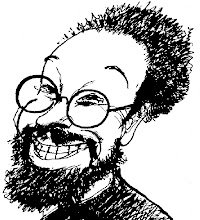 |
| Robert Gossett |
"A Few Good Men" was selected for Best African American Fiction 2010, but its road to print was anything but straight and easy. I wrote the story years ago, so long ago, in fact, that I've forgotten just when. My agent liked it enough to send it to Playboy. The fiction editor there liked it too; at least she said so in her rejection letter. She also said she'd come close to accepting it, but Playboy preferred its women to be more romantic.
My agent then sent it to Emerge, a magazine published in the '90s that's now defunct. There, the editor said he liked the story, and would consider publishing it if I'd rewrite it to include a black woman's viewpoint.
I didn't agree that the story needed rewriting, but I understood his reluctance.
"A Few Good Men" is about men in a barbershop talking about women. I wrote it because I didn't recognize the black men in stories and novels by black women writers like Alice Walker, Toni Morrison, and Ntozake Shange.
And I certainly didn't find in their work men like my grandfather, who for more than 30 years walked downtown to his job as an electrician and then home again in the evening. After dinner, he walked to a second job cleaning two doctors' offices. On the weekends, he did handyman jobs for neighbors.
He had to, to feed and clothe his eight children and pay the mortgage on the house he bought in 1928.
Eventually, "A Few Good Men" found a home in Rick Peabody's anthology Stress City: A Big Book of Fiction by 51 D.C. Guys. And from there, Gerald Early and Nikki Giovanni chose it for Best African American Fiction 2010. A copy of which, serendipitously, made it to the desk of Stories on Stage's artistic director.
It was an amazing, heady experience hearing a professional actor read my work. Robert Gossett (Lou Gossett's cousin) made each of my characters, even the minor ones, vivid and distinct. At one point, I found myself on the edge of my seat holding my breath, almost as if I hadn't written it and didn't know what was coming.
It got even better, though: After Gossett finished, I was introduced.
I'd taken books by the poets Melvin Tolson and Robert Hayden to read while I was in Denver. Tolson I found, well, too obscure, but I liked much of Hayden's work.
One poem, "Those Winter Sundays," stuck with me. It's about a father getting up early on Sunday to light a fire to warm the house, and the son's indifference to his father's sacrifice. It ends:
"What did I know, what did I know
of love's austere and lonely offices?"
I could have stolen those lines for "A Few Good Men."
Energized by the trip to Denver, I've gone back to working on my book about my family. I'd count it a success if I could come up with one or two lines as good as Hayden's.
